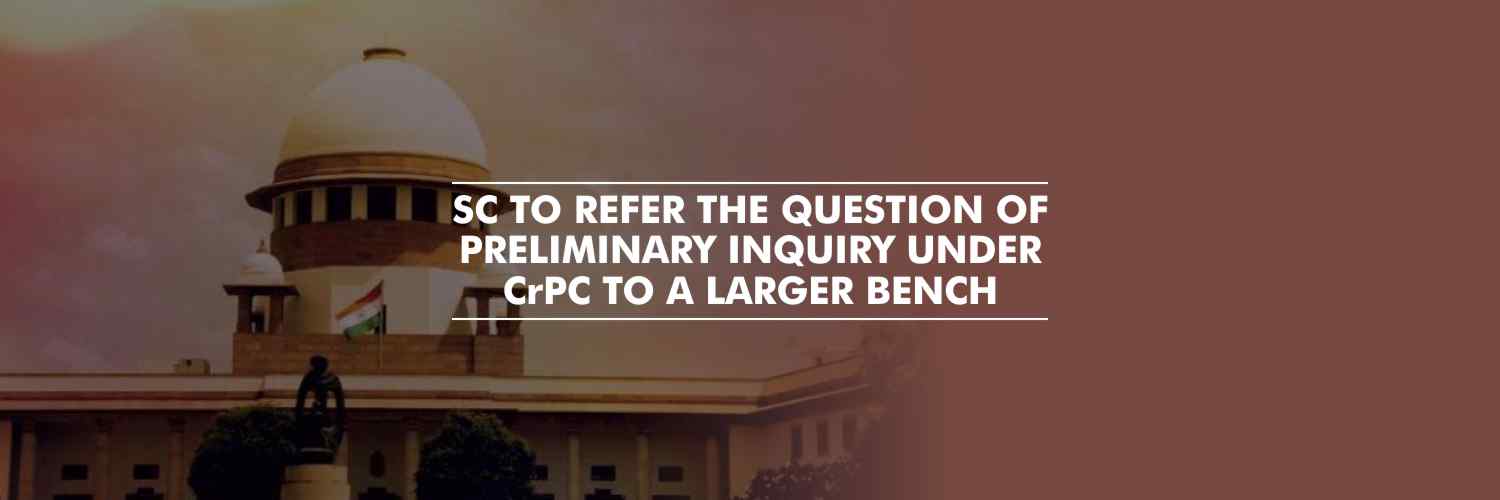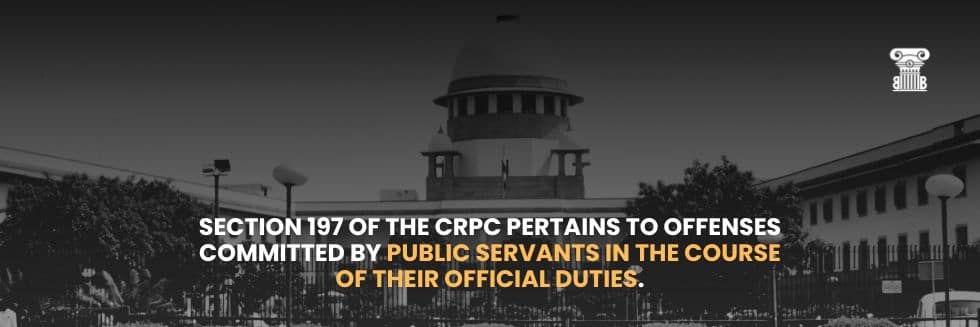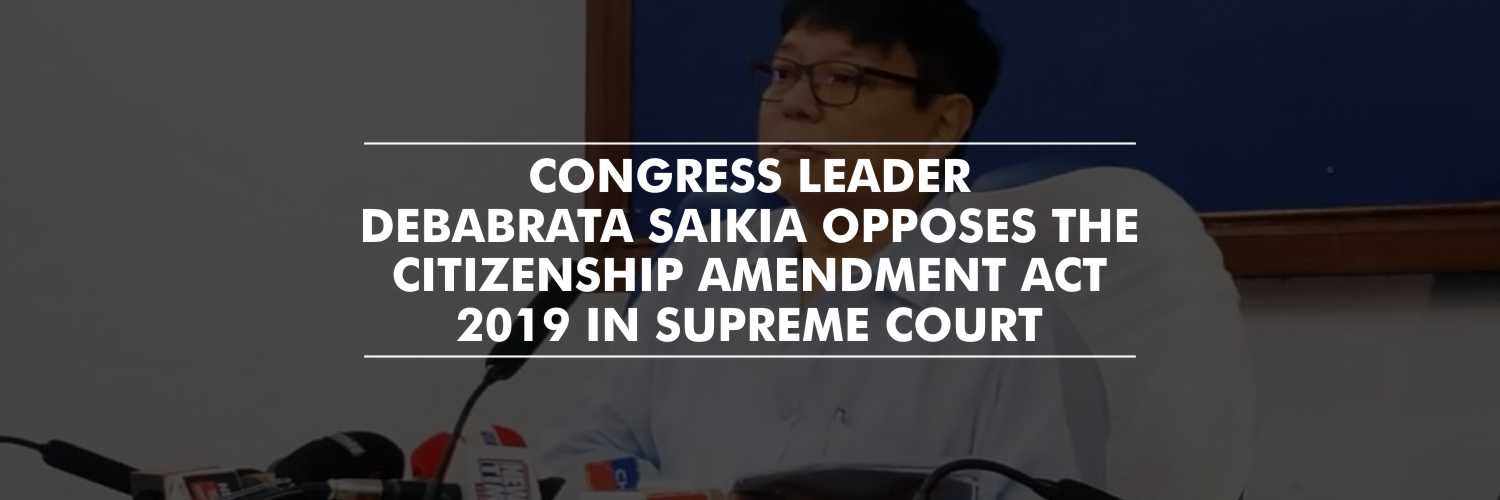The Supreme Court has referred to a larger bench, the question of whether a preliminary inquiry under Section 340 of the Code of Criminal Procedure is mandatory for a complaint under Section 195 of the Code of Criminal Procedure and also the question on the scope and ambit of such preliminary inquiry.
The bench comprising of Justices Ashok Bhushan and Mohan M Shantanagoudar has referred the above question in light of two contradictory judgments by coordinate benches in this regard.
As per the Code of Criminal Procedure, Section 340 lays down the procedure to be followed for the complaints made under Section 195 and also mandates a preliminary inquiry before a complaint under Section 195 of the Act is registered. On the other hand, Section 195 of the Act deal with the prosecution for contempt of the lawful authority of public servants, for offenses against public justice and for offenses relating to documents given in evidence.
Nonetheless, in the present case, the Respondent was charged under Sections 420, 467, 468 and 471 of the Indian Penal Code 1860, for allegedly forging and submitting fabricated documents before the Court during the course of legal proceedings before the Revenue Court. However, in an appeal by the Respondent in the Punjab and Haryana High Court, claiming that pursuant to the provisions under Section 340 of the Act, no preliminary inquiry against him was conducted, the Respondent sought for quashing of his FIR. Subsequently, the High Court accepting the submission, quashed the FIR so registered, citing that no inquiry was conducted and neither that the subordinate authority was directed to hold any such inquiry against the accused, in terms of Section 340 read with Section 195 of the Act.
This was further challenged by the State of Punjab in the Supreme Court.
The Supreme Court observed that Section 340 of the Code of Criminal Procedure provides that, if the Court is of the opinion that an inquiry should be made into any offense referred to in clause (b) of sub-section (1) of Section 195, which appears to have been committed in, or in relation to a proceeding in that Court or, as the case may be, in respect of a document produced or given in evidence in proceedings in that Court, such Court may, after such preliminary inquiry, if any, as it thinks necessary, record a finding to that effect and thereafter make a complaint thereof in writing. The Court, in this regard, has opined that a bare reading of the Section suggests that it is open for the Court to decide whether to hold an inquiry or not.
“Upon a plain reading of this provision, it is clear that it is open for the Court to conduct (or not to conduct) a preliminary inquiry into the matter before lodging a complaint in respect of an offense mentioned in Section 195(1)(b),” stated the bench.
Further, citing a similar stance in Pritish vs. State of Maharashtra (2002), it was held by the Supreme Court, that there is no statutory requirement to afford an opportunity of hearing to the persons against whom that court might file a complaint before the Magistrate for initiating prosecution proceedings. It was observed that if the court finds it necessary to conduct a preliminary inquiry to reach such a finding it is always open to the court to do so, though the absence of any such preliminary inquiry would not vitiate a finding reached by the court regarding its opinion.
However, a Supreme Court Bench of coordinate strength, in Sharad Pawar vs. Jagmohan Dalmiya, (2010), it was held that it is necessary to conduct a preliminary inquiry as contemplated under Section 340 of the act and also to afford an opportunity of being heard to the would be accused, without recording any reasons for departing from the 2002 Pritish case. Nevertheless, in Amarsang Nathaji vs. Hardik Harshadbhai Patel (2017), a two-judge bench of Supreme Court followed the view taken in the 2002 Pritish case.
Observing these conflicting views and considering the question of ‘whether the Court should have heard the Respondent and given him an opportunity to have a say in the matter before ordering prosecution under Section 195 of the act, the bench stated that “We find it necessary that the present matter be placed before a larger Bench for its consideration, particularly to answer the following questions:
- Whether Section 340 of the Code of Criminal Procedure, 1973 mandates a preliminary inquiry and an opportunity of hearing to the would-be accused before a complaint is made under Section 195 of the Code by a Court?
- What is the scope and ambit of such preliminary inquiry?






